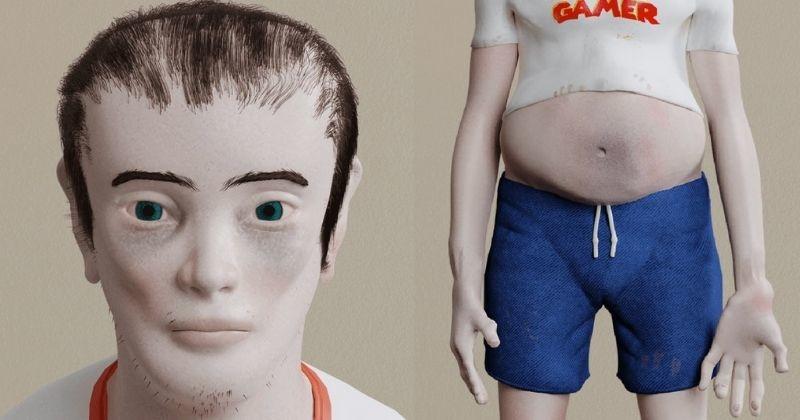If people don’t alter their living patterns, a study was done to anticipate what passionate gamers would look like in 20 years, and the results are depressing. A dummy was made as part of the study, which was carried out by OnlineCasino.ca, to demonstrate the bodily harm that excessive gambling may cause.
The hideous dummy named Michael has pale skin, a bent back, and under-eye bags from lack of sleep. He also gets “Nintendo arthritis” from using the controller too often. As well as varicose veins from sitting for extended periods.

The World Health Organization defines gaming disorders as a pattern of gaming behavior both digital gaming and video gaming. This study focuses on these disorders. Characterized by diminished self-control, giving gaming a higher priority than other pursuits to the point. Where it trumps other hobbies and everyday activities and continues to play games despite experiencing negative effects.
- Advertisement -

According to research by Limelight, the average gamer now spends about 6 hours per week playing online video games. An increase of 19.3% over the previous year, across the United States, the United Kingdom, Japan, South Korea, France, and Germany. The weekly average for UK gamers is 7.15 hours. Even the NHS has started a long-term strategy to address gaming disorders.
Gamers’ Health Issues Like Anxiety and Depression May Trigger
According to clinical psychologists, mental health issues like anxiety and depression predate gaming disorders. Playing video games offers an escape from pressure and stress.

The study offers various recommendations for gamers to be active and healthy, like taking time for exercise. Reducing eye strain by making sure your room is adequately illuminated. And adopting the correct posture, to help counteract the unpleasant symptoms displayed by Michael.
This is not the first study to use a shocked dummy to illustrate the harmful effects of long-term practices. In a 2019 report titled “The Work Colleague of The Future.” Author and futurist William Higham discussed how specific aspects of our work lives may be harming our health. To emphasize his argument, he created a life-sized mannequin named “Emma” who demonstrates all the health issues he raised in his research.



